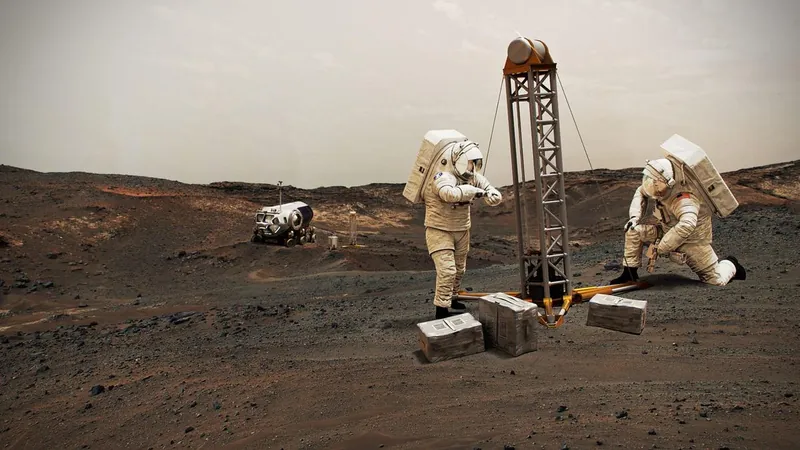
Understanding the Impact of Spaceflight on Astronauts' Brains: The Surprising Findings
2024-11-25
Author: Nur
Introduction
Space travel is one of the most extraordinary challenges faced by humanity, pushing the boundaries of human capability. Astronauts are subject to a myriad of physical and psychological obstacles, including exposure to intense cosmic radiation, the effects of microgravity that can lead to bone density loss and muscle atrophy, and the stress of long-duration missions which often results in sleep deprivation. Indeed, flying in space requires not just physical endurance, but also mental resilience.
Cognitive Impact of Spaceflight
The impact of these stressors on astronauts' cognitive functions, both temporarily and in the long haul, has been the subject of ongoing research. Understanding how these factors interplay is crucial, as astronauts need sharp cognitive abilities to carry out intricate tasks in an environment where even small mistakes could have catastrophic consequences for both themselves and their missions.
NASA's Landmark Study
Recently, NASA scientists completed a landmark study analyzing the cognitive performance of 25 astronauts who spent an average of six months aboard the International Space Station (ISS). The researchers used a specific assessment tool known as the "cognition battery," which includes 10 short tests designed to measure various cognitive functions. They gathered data at five crucial times during the astronauts' missions: before launch, early in the mission, late in the mission, and two key points post-mission. This study represents the largest dataset on cognitive performance from professional astronauts to date.
Findings and Implications
The findings are encouraging. While some cognitive domains showed slight changes during the missions, researchers confirmed that these changes were not permanent. “There is no evidence of any significant cognitive impairment or long-term neurodegenerative decline in astronauts spending six months on the ISS,” stated Sheena Dev, the lead researcher at NASA's Behavioral Health and Performance Laboratory. “Our research indicates that living and working in space is not linked to widespread cognitive deficits that would hint at serious brain damage.”
Nonetheless, certain cognitive areas did appear to suffer during the mission—processing speed, visual memory, focus, and decision-making skills were notably impacted at various points. Such shifts can also be observed on Earth under stress, highlighting the resilience of the human brain. For instance, individuals can experience fleeting issues with memory or attention after a sleepless night or an especially busy day.
Future Exploration
As NASA and other space agencies set their sights on ambitious missions to the Moon and Mars, the insights gleaned from this research provide valuable guidance for future endeavors. Although the size of the current study is relatively small, it lays the groundwork for further exploration into the cognitive effects of spaceflight as humanity embraces a new era of deep-space exploration.
This study not only sheds light on the effects of space on the human brain but also implies that astronauts are equipped with cognitive capabilities resilient enough to withstand the stresses of long-duration missions. As we expand our reach into the cosmos, understanding these effects will be crucial for ensuring that astronauts remain healthy and capable explorers in the final frontier.






 Brasil (PT)
Brasil (PT)
 Canada (EN)
Canada (EN)
 Chile (ES)
Chile (ES)
 España (ES)
España (ES)
 France (FR)
France (FR)
 Hong Kong (EN)
Hong Kong (EN)
 Italia (IT)
Italia (IT)
 日本 (JA)
日本 (JA)
 Magyarország (HU)
Magyarország (HU)
 Norge (NO)
Norge (NO)
 Polska (PL)
Polska (PL)
 Schweiz (DE)
Schweiz (DE)
 Singapore (EN)
Singapore (EN)
 Sverige (SV)
Sverige (SV)
 Suomi (FI)
Suomi (FI)
 Türkiye (TR)
Türkiye (TR)